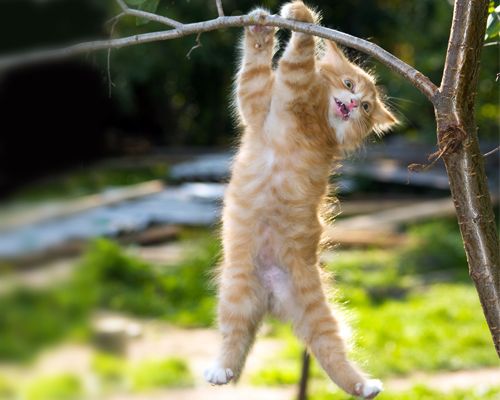

Firefighters were called to rescue nine seagulls, six cats – including one stuck up a tree – a pigeon and a cow last year.
In previous years, the Jersey Fire and Rescue Service have also been dispatched to save donkeys, parrots, magpies and a pet rat.
Perhaps understandable given their generous number of lives, cats are Jersey’s most rescued pet – between 2010 and last year, 37 cats have been carried and cajoled to safety by firefighters – most from roofs but also from engine bays, gutters, wall-cavities, fences and, of course, trees.
Seagulls are next on the rescue list – 12 freed over the past five years, mostly from roof netting. Due to injury, the majority were handed to the JSPCA for treatment and recovery.
More unusual rescues include a pony from a swimming pool, a pet rat caught in a rat-trap, a dog locked in a car with the keys and a sheep from a cliff-top last year.
In 2013, a fire engine was sent to rescue a squirrel reporting being in a ‘precarious position’ but the red-haired rodent found his own way to safety before the four firefighters needed to act.
In total, the Fire Service has been sent to rescue 77 animals in Jersey in the past five years.
A spokesmen for the service said it had a statutory duty to save stricken animals.
“In the majority of instances a standard fire engine with a crew is deployed. This is because the animal is in a situation in which access can only be gained by using specialist equipment carried on these units. If a higher priority call requires a response, the unit assigned may be diverted as a full firefighting crew.
"It is possible to levy charges for the provision of non-emergency services, however, for most animal rescue events a charge is not made.
“This is because, in most cases, the service is either assisting a charity, there is no identifiable person to charge or the situation is urgent and there is a strong possibility that someone else, untrained and ill equipped, will attempt to rescue the animal and place themselves at risk if we fail to act.”
Comments
Comments on this story express the views of the commentator only, not Bailiwick Publishing. We are unable to guarantee the accuracy of any of those comments.